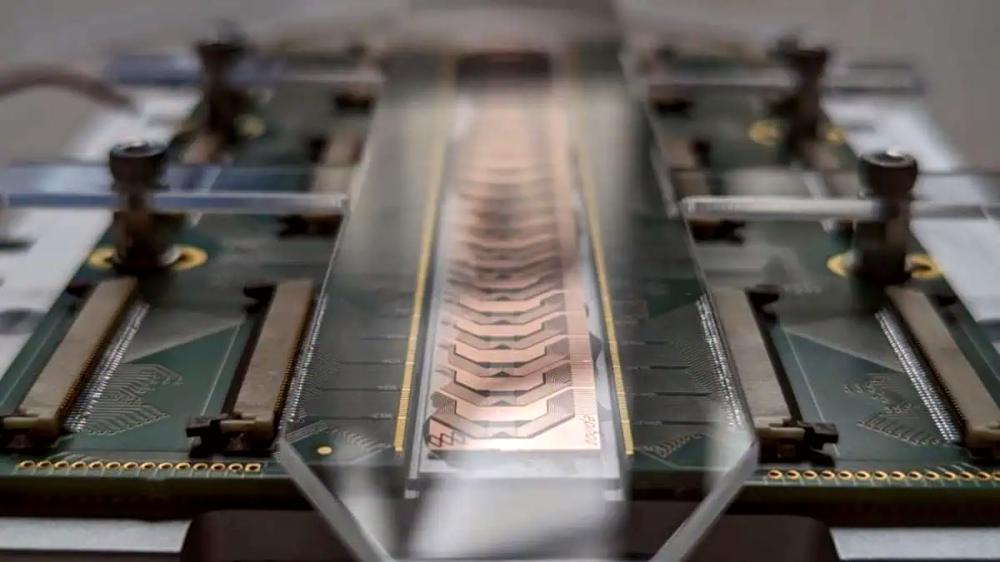A collaboration among scientists from Italy, Germany, and France is underway to create a groundbreaking quantum computer that will utilize glass photonic chips.
While quantum computers are expected to outperform traditional systems significantly, various challenges arise in the realization of these practical and efficient devices. The initiative, led by the Polytechnic University of Milan, brings together experts from leading research centers and small to medium enterprises across France, Italy, and Germany, aiming to enhance quantum characteristics through the unique properties of glass.
Researchers are employing glass chips developed by Ephos in the construction of a photonic quantum computer. These chips process and transmit information using light, supporting up to 200 reconfigurable optical modes, allowing for dynamic control of light movement within the chip.
“It’s essential to use materials that allow light to pass through. This is a complex task, as it requires limiting the light while avoiding its absorption. If light is absorbed, it cannot propagate,” explains Julia Acconcia from the Polytechnic University of Milan.
The scientists aim to generate individual photons and direct them through glass circuits, which could eventually help solve pressing issues like creating more efficient batteries, developing new medicines, and uncovering the mysteries of the universe. The technology of laser printing on glass is particularly promising. In the process, light particles are generated and transmitted to the chip via optical fibers. Everything is made of glass, which minimizes the risk of photon deviation along the path.
Currently, the German company Pixel Photonics is enhancing ultra-sensitive detectors to register each photon. At the same time, Schott AG is producing and supplying high-quality glass substrates.
The research team, led by Julia Acconcia, is developing high-performance electronics to control the system. Meanwhile, specialists from the University of La Sapienza's experimental quantum optics department are focused on generating single photons.
The French Single Fund is developing open-source software for quantum computing. Teams from the National Center for Scientific Research and the University of Montpellier are modeling advanced energy storage solutions, which are crucial for future quantum technology programs.
The QLASS researchers share a common objective: to create a functional photonic quantum device at the University of La Sapienza by 2026. Upon project completion, software developed at the University of Montpellier and the Single Fund will allow testing of this device.
The first task for the new quantum computer will be to develop more advanced lithium-ion batteries. By using variational quantum algorithms—special instructions that help quantum machines tackle problems more effectively—quantum computations can model battery chemistry, accelerate the search for new materials, and even improve state monitoring.
While scientists understand the laws governing atoms and compounds, tracking their interactions in real time is incredibly complex and goes beyond the capabilities of current silicon computers. Researchers expect that quantum computers will expedite the development of new materials for batteries and medicines.
The findings of the research have been published in Horizon Magazine.
Source: ZMEScience
